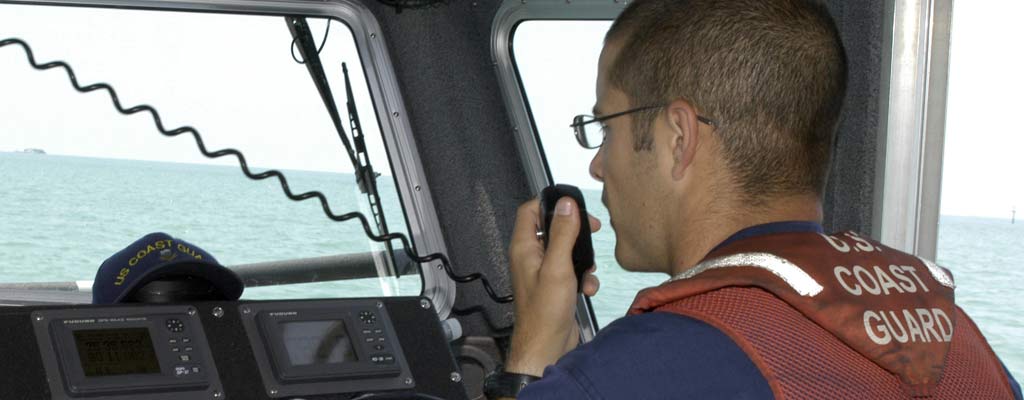Calling for Help?
In emergency situations, there are certain procedures to follow to ensure prompt response to your need for help. There are three phrases that you might hear on a VHF radio, and they all relate to safety.
In emergency situations, there are certain procedures to follow to ensure prompt response to your need for help. There are three phrases that you might hear on a VHF radio, and they all relate to safety.
- MAYDAY - distress signal, requires the most urgent response. This signal is only to be used when a person, or boat is threatened by grave or imminent danger, and requires assistance.
- PAN-PAN - (pronounced pahn-pahn) used to signal urgent information, like when someone has fallen overboard, or a boat is drifting into shore or a busy shipping channel. If your emergency isn't immediately life threatening, say Pan-Pan instead of Mayday, for example if you have a controllable leak, and you want help standing by in case it gets worse.
- SECURITE - (pronounced sea-cur-i-tay) is the safety signal. This is used to transmit information about the safety of navigation. For instance, if a large commercial vessel is coming through a narrow channel, this signal would be used. Can also be used to transmit weather information, such as when a powerful storm system is approaching.
There is a "procedure" for sending out a distress call, but all you really need to know is to turn your VHF to Channel 16 and high power, key the mike by pressing the talk button, and say one of the three phrases three times, along with position and situation information. Here's a hypothetical mayday from the small fishing boat, Tambourine:
"Mayday, Mayday, Mayday. This is the Tambourine. Our position is 24:33' north and 74:56' west and we are sinking."
- Try to speak slowly and clearly, and repeat this information three times. The essential information is Mayday, your position, and your emergency. If you have time, describe your boat and how many are aboard:
"We are a 23 foot Mako, green hull, white decks, with two adults and two children aboard."
- If someone is injured, mention that. If you don't get an immediate response keep periodically sending out a Mayday broadcast as long as the radio will function, taking care to give your position with every transmission. If time permits, scan through the other channels and interrupt any radio traffic you hear with your Mayday broadcast. If you don't hear traffic, try transmitting on Coast Guard Channel 22A.

